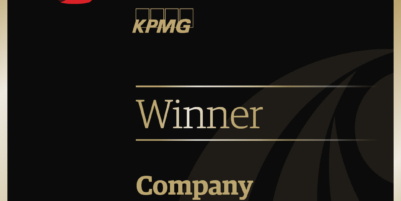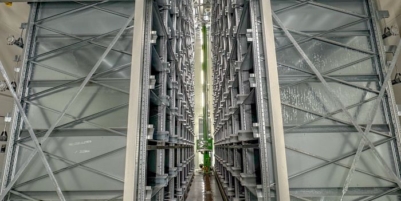-
Rite-Hite unveils new range of hydraulic kits to upgrade and extend dock leveller performance - 1 day ago
-
REWE and Cimcorp automate fresh supply chain for Berlin supermarkets and stores - 1 day ago
-
Q1 – A recovery period or time to fix, switch and scale? - 1 day ago
-
NULOGY’S SHOP FLOOR SOFTWARE TO POWER COMPLETE CO-PACKING’SOPERATIONS - February 13, 2026
-
Why lead generation depends upon good content - February 13, 2026
-
Wallapop and Albatross Sign Strategic Partnership to Bring Real-Time AI Discovery to the Future of Consumer-to-Consumer Commerce - February 12, 2026
-
Thorworld ramp helps Hubergroup to streamline its unloading operation - February 6, 2026
-
TRACKER INNOVATION FROM QUECLINK TO BOOST STOLEN VEHICLE RECOVERY PERFORMANCE - February 4, 2026
-
Flexi Narrow Aisle hits 50! - January 29, 2026
-
DERRY BROS ATTRACTS RECORD NUMBERS OF FREIGHT CUSTOMERS SEEKING CUSTOMS SUPPORT - January 29, 2026
Armstrong’s Fulfilment & Warehousing has found an innovative way of managing its cashflow and expanding its business – and fixing a leaking roof into the bargain – thanks to a tailored Invoice Finance facility from Optimum Finance.
The solution is not only helping the family-run business to plug the hole in the rafters, but also cover the gap in cashflow between an invoice being paid and the goods being delivered, helping the business advance towards a sustainable and prosperous future.
When Richard Armstrong, an ex-Corporal of Horse in the Household Cavalry, took the reins of the business, the challenge was that he was having to pay for shipping costs, staff and suppliers, while waiting to be paid themselves.
With Invoice Finance, he uses his receivables (invoices) as the principal asset against which money can be raised. Optimum Finance pays Armstrong’s Fulfilment & Warehousing an agreed percentage of the invoice value as soon as it is submitted, driving access to liquidity at the point of invoice, as opposed to having to wait. It also delivers an outsourced credit management function.
Richard says that Invoice Finance provided an immediate solution: “We faced the challenge of holding and distributing stock, and covering the cost of doing so, while waiting to be paid for our services,” he explains.
“Working with Optimum has enabled us to strengthen our business position and focus on the future, without the hassle of chasing payments ourselves. Now we can be flexible in our approach and hold stock that garners the most profit with a financial facility that grows as we do.”
Organisation and space optimisation are key pillars in running a successful warehouse operation. Not only must a facility house enough stock to fulfil its current orders, but it must also ensure it can accommodate stock for future orders, without exceeding its demand. And in an online and customer centric industry, consumers often expect product delivery within 24 hours.
Fulfilling all of these requirements is no easy task. It’s expected that by 2030, 60% of UK warehousing facilities will be considered unlettable due to non-compliance with upcoming energy efficiency standards and lack the technological capabilities required to meet current logistical demand. To combat this issue, many facilities have already moved to new premises. Raising the funds to do so, however, can be a challenge, but in Richard’s case it was wholly necessary.
“The roof was costing the company £20,000 a month,” he says. “The business model of bulk storage doesn’t work in the modern era. We’ve swapped our old premises and said goodbye to the leaky roof to something more modern and compliant with environmental regulations. With the help of Invoice Finance and an improved cashflow position, we’ve transformed from a high-stock, low-turnover firm to a low-stock, high-turnover firm – helping us become more efficient in terms of both time and cost.
“The support we’ve received from Optimum has helped us enormously,” he explains. “They quickly understood the unique position of our business and what we needed to achieve to be more successful. Having the financial flexibility to not only operate, but focus on the future is an exciting prospect, and critical in our onward business journey.”

































